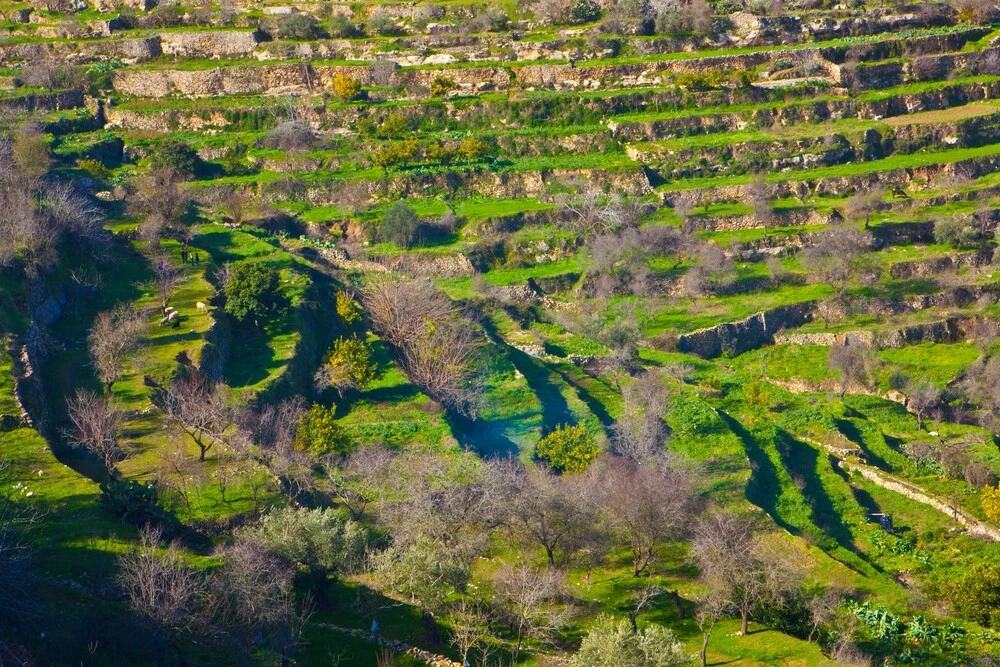
© Centre for Cultural Heritage Preservation
Battir is a flourishing, ancient agricultural site which is stewarded by Palestinians to this day, yet a planned settlement by Israel’s far-right government could threaten this precious, UNESCO designated village, according to the Associated Press.
Part of the reason that Battir is a UNESCO site is because of an ancient irrigation system that feeds the lush valley defined by aqueducts, terraces, and an abundance of prized olives and eggplants.
“The water distribution system used by the families of Battir is a testament to an ancient egalitarian distribution system that delivers water to the terraced agricultural land based on a simple mathematical calculation and a clear time-managed rotation scheme,” the UNESCO page for Battir reads, further defining the site as having a “high level of authenticity” as villagers refuse to use modern implements to keep the careful balance of the ancient system in place.

However, water distribution is exactly what would be most effected by the planned Israeli settlement. Israel already controls most of the water supply in the country, limiting the amount of water Palestinians can access. The planned settlement would bring 560 new residences to a hilltop overlooking the valley, which would not only drain water sources but effectively block the water from reaching the valley down below, as the groundwater in the area come from rainfall that is deposited onto those hills before being slowly absorbed.
“If you build an extensive town at the top, it destroys this landscape,” said Nadav Tal, a hydrologist who serves as the Middle East Water Officer for EcoPeace, a joint Israeli-Palestinian group, told the AP.
Meanwhile, 40% of the villagers in Battir receive their livelihood from local agriculture, so not only would a protected cultural landscape disappear, but Palestinians would lose their independent economy. Yet it seems that despite protest by Battir residents, environmental groups, and anti-settlement activists, the settlement will likely be built.


